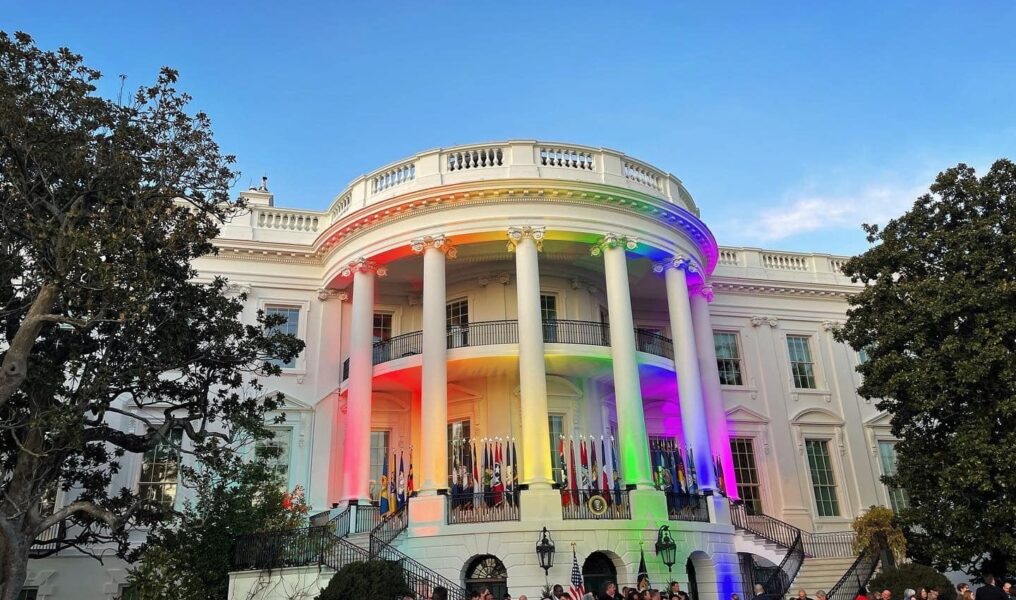Michigan LGBTQ+ Leaders In Attendance to Celebrate Respect for Marriage Act Bill Signing at White House
Jeremy Moss, Laurie Pohutsky among those in attendance during historical signing

When President Biden signed the historic Respect For Marriage Act into law on Dec. 13, leaders from key Michigan civil rights organizations were in attendance at the White House ceremony. The bill passed the U.S. House of Representatives last week with the support of just 39 Republicans. The margin was more favorable in the U.S. Senate, where the bill passed by a 61-39 majority.
“Today’s a good day,” Biden said during the ceremony. “Today America takes a big step towards equality.”
Equality Michigan (EQMI) posted to Facebook from the event, quoting speaker Nancy Pelosi: "America has always been about expanding freedom, not restricting it."
"Today, President Biden signed the Respect for Marriage Act into law. Equality Michigan was honored to be invited to Washington DC for the bill signing this afternoon,” the post continued.
Michigan State Sen. Jeremy Moss also shared his experience at the bill signing on Facebook.
“What an honor to witness President Joe Biden sign the Respect for Marriage Act at the White House today. Michiganders must still work to repeal our outdated 2004 amendment banning marriage equality. Even with the passage of the Respect for Marriage Act, if Obergefell should fall, LGBTQ+ couples would not be able to wed in Michigan. Love is love and our State Constitution must reflect that,” he wrote.
On Twitter, Michigan House Rep. Laurie Pohutsky wrote, “I’m honored to be in DC today for the signing of the Respect for Marriage Act. Its passage makes it even more clear that we need to pass my and @JeremyAllenMoss’s bills to amend the Elliott Larsen Civil Rights Act in Michigan this term to guarantee protection for all.”
Despite some significant limitations — should the 2015 Supreme Court decision (Obergefell v. Hodges) be struck down by the court, the RFMA won’t fully protect same-sex spouses in various ways — the new law is history-making. No matter what happens at the Supreme Court, the RFMA will require every state to recognize same-sex and interracial marriages, a requirement that will supercede any contradictory state laws.
If Obergefell is turned over, Michigan would need to codify support for same-sex marriage into its constitution. EQMI shared a recent Pride Source article on this topic and addressed the issue on Facebook
“PSA: The recently passed Respect for Marriage Act *does not* protect marriage equality," EQMI posted. "If the Supreme Court were to overturn Obergefell v. Hodges, same-sex marriage would become illegal in Michigan and many other states. That's why we need to call upon the Michigan Legislature to codify the right of same-sex couples to marry in our state."










